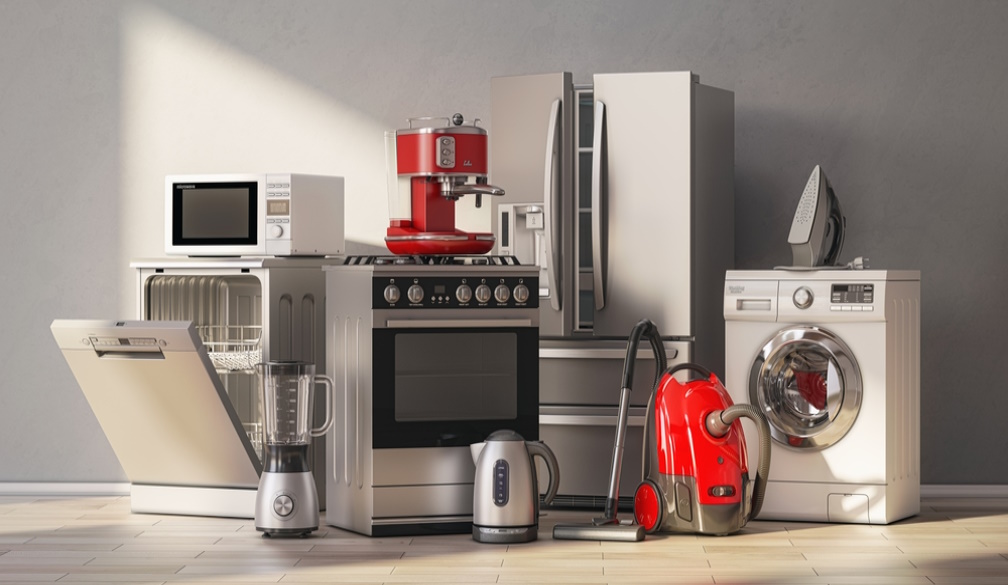Why It’s Worth Repairing Household Appliances And How to Do It

In an age where replacing malfunctioning household appliances and electronics is often seen as the easiest option, repairing them instead can offer significant financial, environmental, and practical benefits. Repairing not only saves money but also helps reduce electronic waste, conserve resources, and foster self-reliance. Here’s a guide to some of the most effective ways to repair your appliances and electronics, along with the advantages of doing so.
- Troubleshoot Common Problems First
Before you consider expensive repairs or replacements, start by diagnosing the issue. Often, common problems can be fixed with minimal effort. For example, if an appliance isn’t working, check for loose connections, tripped circuit breakers, or clogged filters. Many issues stem from simple oversights or minor malfunctions.
Consult the user manual that came with your device. These manuals often include troubleshooting sections that can guide you through resolving common problems. Additionally, the internet is a treasure trove of repair resources. Websites like iFixit and YouTube feature step-by-step guides and videos for fixing a wide range of devices, from coffee makers to smartphones.
- Replace Faulty Parts
When a part of your appliance or device is damaged or worn out, replacing it can often restore functionality. Start by identifying the problematic component. For instance, look for signs of wear, cracks, or malfunctioning elements such as switches or fuses.
Replacement parts are widely available online through platforms like Amazon, eBay, or even the manufacturer’s website. Many appliances are designed with modular components like batteries, knobs, or hoses that can be easily swapped out. With a bit of research and effort, you can replace these parts and save significantly compared to buying a new item.
Where parts aren’t individually available (such as small clips or moulding) or are not produced any more, there are still options. A 3D printing service can reproduce even small and detailed plastic parts.
- Use the Right Tools for the Job
Having the right tools can make all the difference when repairing appliances or electronics. Basic tools such as screwdrivers, pliers, and multimeters are essential for many repairs. For electronics, you may need specialized tools like spudgers, anti-static wristbands, or precision screwdriver sets.
Soldering is another skill worth learning if you plan to repair circuit boards or electrical components. It can fix loose connections or repair damaged wiring, breathing new life into items that might otherwise seem beyond repair.
- Seek Professional Help When Necessary
For complex repairs that go beyond your skills or tools, seeking professional help is a wise choice. Local repair shops can handle intricate issues, such as motor replacements or advanced electronics repairs. Manufacturer support services may also provide repair options or exchange programs for damaged products.
Right-to-repair laws in many regions now ensure that consumers have access to service manuals and replacement parts, making professional repairs more accessible and cost-effective.
- Leverage Repair Cafés and Communities
Repair cafés and online communities are invaluable resources for DIY repairs. Repair cafés are community events where skilled volunteers help attendees repair their items, fostering a culture of sustainability and collaboration.
Online forums and social media groups, such as those on Reddit or Facebook, provide platforms to seek advice and share repair experiences. These communities often have knowledgeable members who can guide you through repairs step by step.
- Practice Preventive Maintenance
Regular maintenance can prevent many common appliance and electronic issues, prolonging their lifespan. Simple steps such as cleaning filters, dusting internal components, and checking seals and hoses can help your appliances function efficiently.
- Learn Repair Skills
Investing time in learning repair skills can empower you to handle a wide range of issues independently. Many community centers, online platforms, and workshops offer repair tutorials. Websites like iFixit provide detailed guides for repairing a vast array of devices, making it easier than ever to gain hands-on experience.
Repairing your household items doesn’t just save money; it cultivates a sense of accomplishment. You gain practical skills that can be applied repeatedly, further increasing your savings over time.
The Benefits of Repairing
Repairing household appliances and electronics is not only practical but also a sustainable and rewarding practice. Embracing it means you can keep your items in good working condition for years to come. The environmental, financial, and personal benefits of repairing rather than replacing make it a worthwhile endeavor for anyone looking to make a positive impact on their wallet and the planet.

